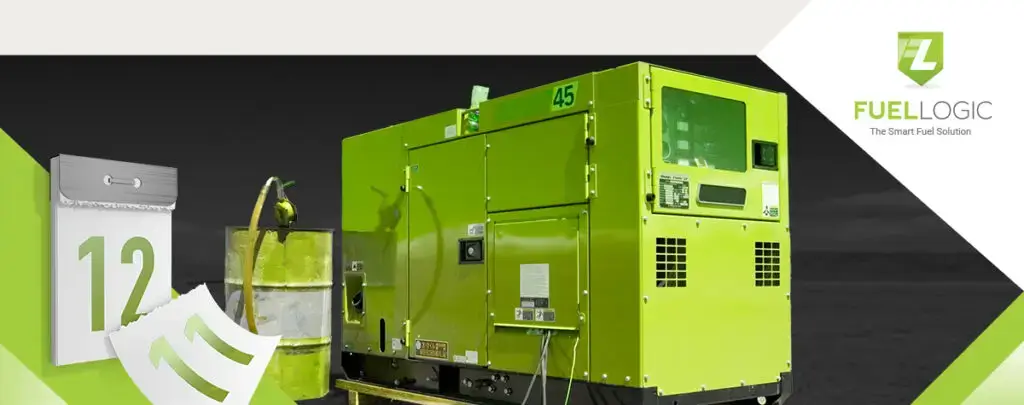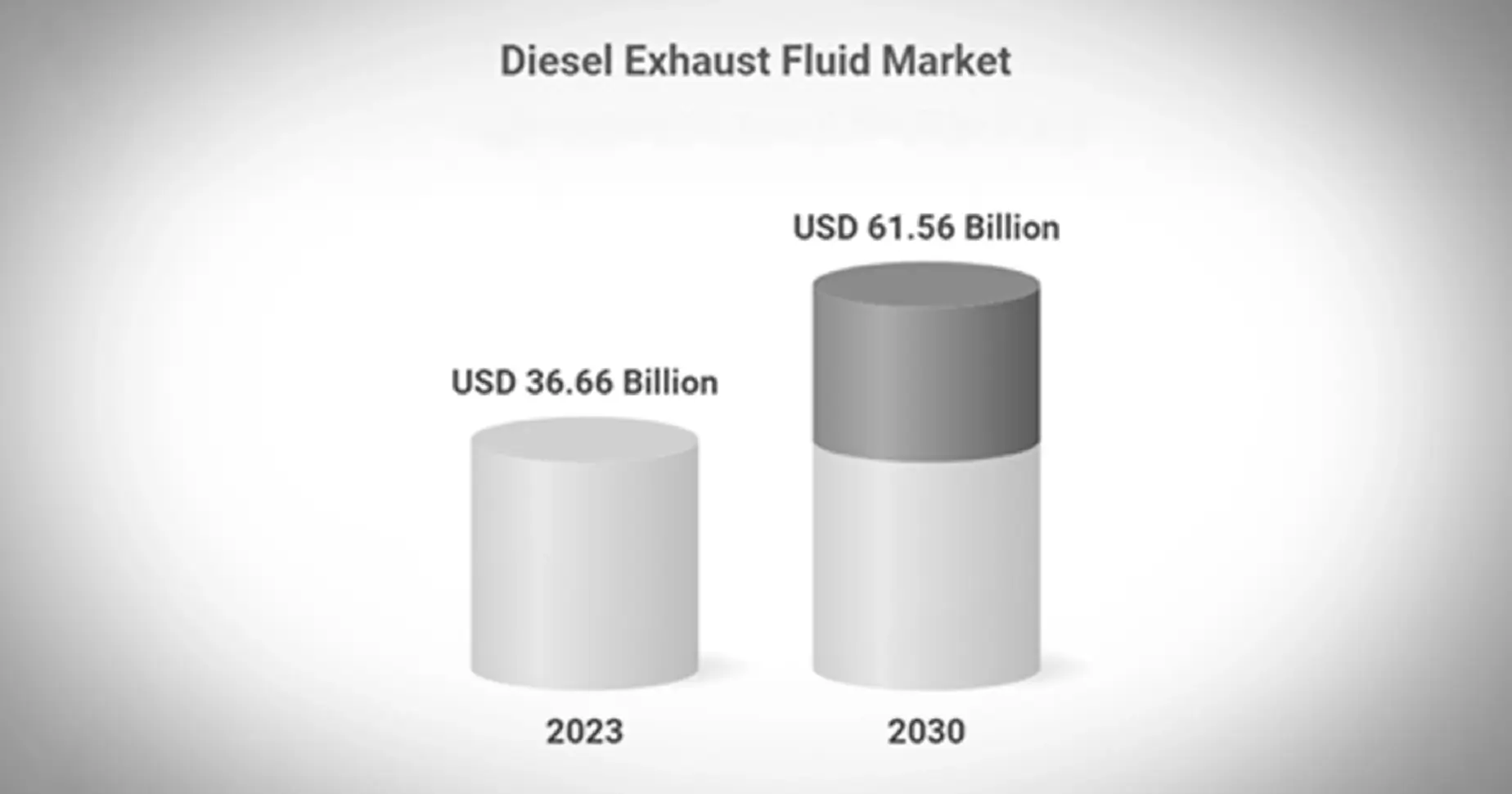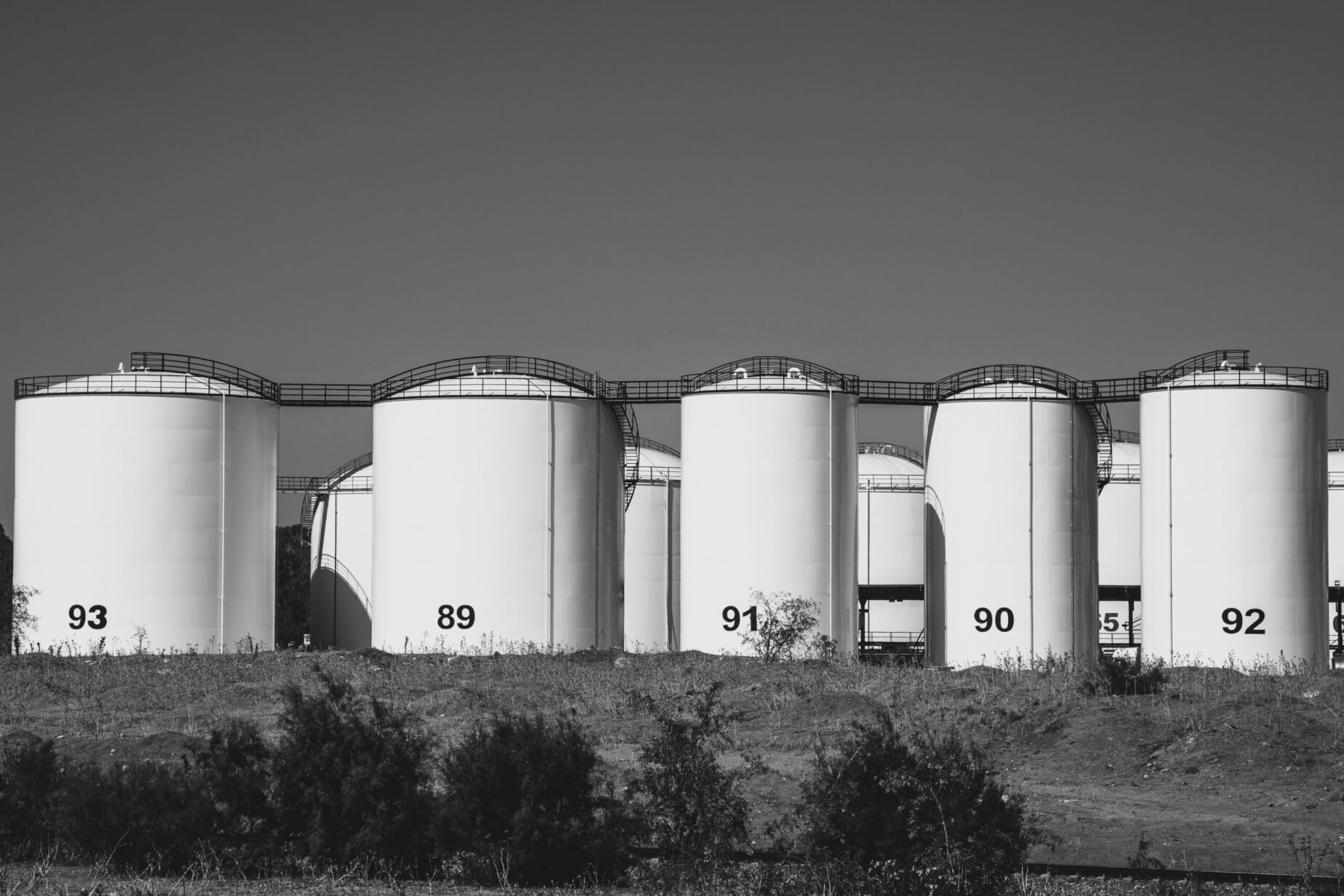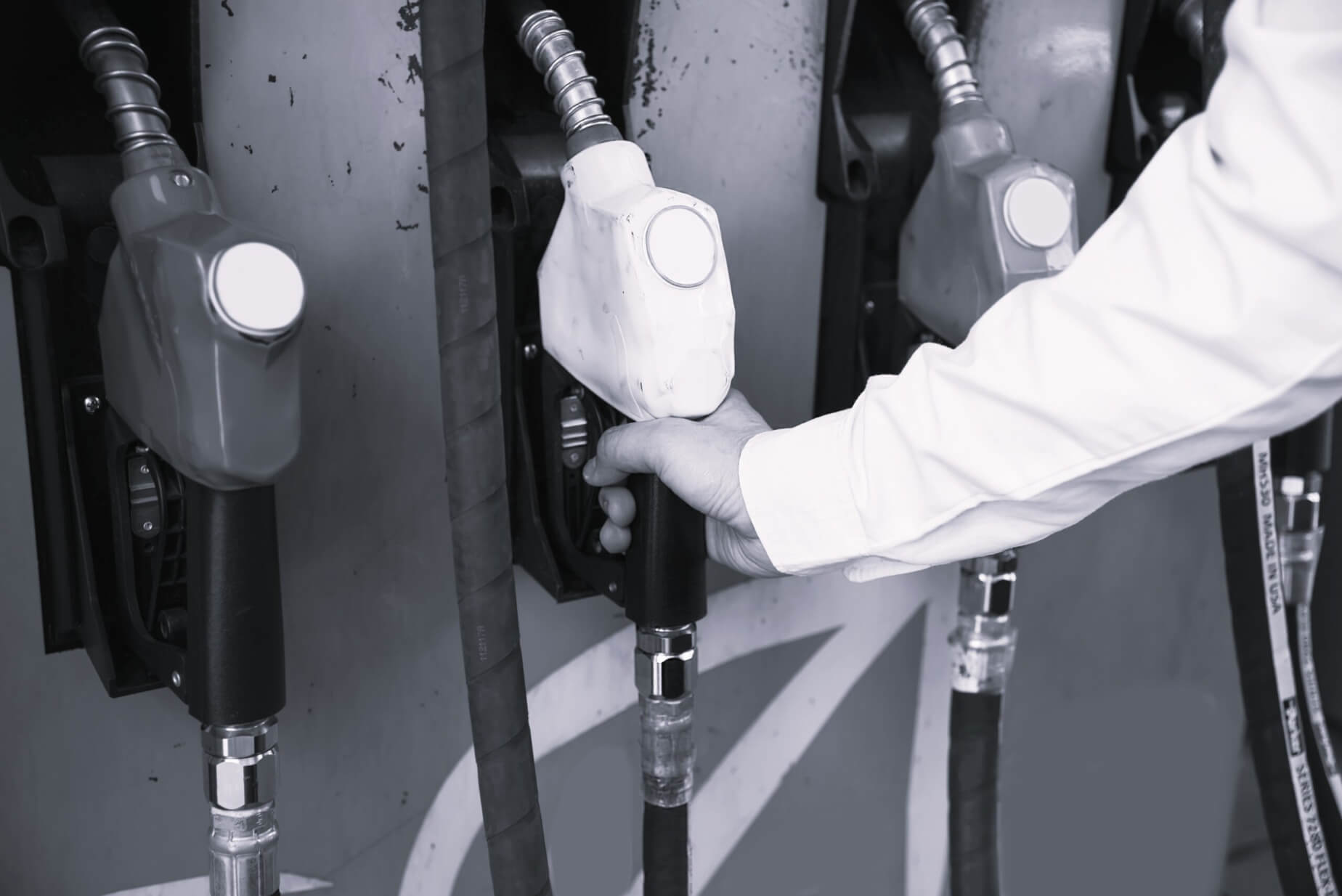How Long Does Diesel Last? Tips For Long Term Diesel Fuel Storage.
As we rely on generators for power backup, it is crucial to know how long the diesel fuel can last in them. The question of “How long does diesel last in a generator?” is one that we must consider to ensure our generator’s longevity and efficiency.
According to research, diesel fuel can last up to 12 months if it is stored correctly. However, the lifespan of diesel fuel can vary based on factors such as temperature, humidity, and fuel quality. You can also further the life of your diesel with a fuel stabilizer or biocide.
Failure to use diesel fuel within this time frame could result in various problems, including clogged fuel filters, engine misfires, and even total engine failure. To avoid such issues, it’s crucial to practice regular fuel polishing and general generator maintenance. Let’s delve into these topics to understand why they are essential and how we can incorporate them into our routine.

Factors affecting the shelf life of diesel fuel
Following are the factors that affect the diesel fuel lifespan. Understanding these will let you have the best diesel generator that you can rely on.
1. Exposure to oxygen
One of the primary factors that affect diesel fuel lifespan is exposure to oxygen. Diesel fuel reacts with oxygen in the air, which can lead to oxidation and the formation of harmful contaminants. The oxidation process can occur even in sealed containers due to the small amount of air trapped inside.
2. Temperature
Diesel fuel can degrade faster at higher temperatures, especially in hot climates. High temperatures can cause the fuel to break down, leading to the formation of sediments and deposits. On the other hand, low temperatures can cause the fuel to thicken and form waxes, which can damage fuel filters and injectors.
3. Water contamination
Water contamination is another significant factor that affects diesel fuel lifespan. Water can enter diesel fuel tanks through condensation, leaks, or poor storage conditions. The presence of water in diesel fuel can cause microbial growth, corrosion, and fuel instability.
4. Contamination
Diesel fuel can become contaminated with dirt, rust, and other particles. This can lead to corrosion and damage to the fuel system components and reduce the effectiveness of fuel additives.
5. Microbial growth
Microbes such as bacteria and fungi can grow in diesel fuel when it is stored for extended periods. These microorganisms can clog fuel filters, degrade the fuel quality, and produce harmful byproducts that can damage the fuel system.
Fuel Polishing – When Your Old Diesel Fuel Has Gone Bad
Fuel polishing is the process of removing contaminants from the fuel to ensure it meets the required quality standards. The process involves the use of specialized equipment designed to filter out impurities and water from the fuel.
Importance of Fuel Polishing
Fuel polishing is essential for maintaining the quality and reliability of backup generators that rely on stored fuel for their operation. Over time, stored fuel can become contaminated with water, sediment, and other particulate matter, which can lead to engine problems such as fuel starvation, blockages in filters and fuel lines, and engine breakdown.
Fuel polishing involves removing contaminants and water from the fuel through filtration, centrifugation, or other methods. This process ensures that the fuel supply remains clean and free of contaminants, which in turn prevents costly generator downtime and repairs.
By implementing a regular fuel polishing schedule, businesses can avoid the need for costly fuel replacement and prolong the life of their backup generators or diesel storage tanks. Additionally, keeping the fuel supply clean improves generator efficiency and reduces emissions, which have a positive impact on the environment.
Fuel Polishing Process
Below are the steps involved in the fuel polishing process for your stored diesel fuel:
Inspection
Before starting the fuel polishing process, the fuel tank must be inspected to determine the type and extent of contamination in the fuel. This helps in determining the right equipment and methods to use during the fuel polishing process.
Pumping
The next step is to pump the fuel out of the tank and into the polishing equipment. This can be done using a fuel transfer pump or a vacuum pump.
Filtering
The fuel is then passed through a series of filters to remove impurities and water. The filters used can range from a basic particulate filter to a multi-stage filtration system that can remove microscopic particles and water.
Polishing
After the fuel has been filtered, it is polished to remove any remaining contaminants further. The polishing process can involve the use of a centrifuge or a polishing unit that uses a series of filters to achieve the desired level of cleanliness.
Returning fuel
Once the fuel has been polished, it is then returned to the diesel fuel storage tank, ready for use.
Benefits of getting fresh fuel with polishing services
Here are some of the benefits of fuel polishing:
Prevents engine damage
Fuel polishing removes contaminants that can clog fuel injectors, damage engine components, and reduce engine performance. This can help to extend the lifespan of the diesel engine and reduce maintenance costs. Engine repairs can get pricey, so if you can make it last longer, it’ll save you money.
Saves fuel costs
Contaminants in fuel can reduce its efficiency and cause engines to consume more fuel. Fuel polishing can help improve fuel efficiency and reduce fuel consumption, saving fuel costs.
Improves engine performance
Clean fuel provides better engine performance, including smoother acceleration, increased power output, and reduced emissions.
Reduces downtime
Fuel contamination can cause engine breakdowns and unplanned downtime. Fuel polishing can help to prevent these issues, increasing productivity.
Guarantees high fuel quality
Fuel polishing ensures that the fuel is of high quality, preventing contaminants from entering the engine and causing damage. This improves the shelf life of your diesel fuel for long term storage.
Increases safety
Contaminated fuel can be a safety hazard, increasing the risk of fires and explosions. Fuel polishing can help to reduce this risk, improving overall safety.
Reduces environmental impact
Clean fuel produces fewer emissions, reducing the environmental impact of engines.
Compliance with regulations
Many industries have regulations in place to ensure that fuel is of high quality. Fuel polishing can ensure compliance with these regulations, avoiding fines and other penalties.
How often should old fuel be polished?
Fuel polishing frequency depends on several factors, including the quality of the fuel, storage conditions, and usage frequency.
Typically, it is recommended to have fuel polished every 6 to 12 months to ensure optimal performance and prevent fuel contamination issues. However, if you notice any signs of fuel degradation, such as foul odor or increased sediment (also called sludge), it is recommended to have the fuel polished immediately.
General Generator Maintenance
When following the generator maintenance checklist, it’s important to keep in mind that diesel fuel has a limited lifespan, so it’s crucial to check and maintain the fuel level to ensure that the generator has enough fuel to operate and also to consider how long does diesel last in order to store and use the fuel properly.
In 2016, an explosion at a Texas oil refinery hurt an employee and stopped production. This incident shows that it’s crucial to create a maintenance checklist applicable to different types of generators to prevent similar accidents from happening again.
Here are some general checklists for weekly, monthly, and annual maintenance of a generator:
Weekly Maintenance Checklist:
· Check the oil level and add oil if necessary
· Check the fuel level and add fuel if necessary
· Inspect the air filter and clean or replace it if dirty
· Inspect the battery terminals and clean them if corroded
· Start the generator and let it run for at least 30 minutes
Monthly Maintenance Checklist:
· Check the coolant level and add coolant if necessary
· Check the drive belt tension and adjust it if necessary
· Check the spark plug and replace it if necessary
· Inspect the control panel and wiring for any signs of damage or wear
· Load test the generator for at least 30 minutes
Annual Maintenance Checklist:
· Change the oil and oil filter
· Replace the air filter
· Replace the fuel filter
· Inspect and replace the spark plug
· Clean and inspect the cooling system, including the radiator and hoses
· Inspect the generator’s wiring and connections
· Check the battery’s electrolyte level and replace it if necessary
· Test the generator’s voltage and frequency output
· Inspect and replace any worn or damaged parts
· Conduct a full load test on the generator for at least 2 hours
Now You Know Long Diesel Lasts – What’s Next?
The importance of efficient and reliable fuel delivery cannot be overstated for businesses that rely on heavy equipment or trucks to keep their operations running smoothly.
At Fuel Logic, we understand the critical role that fuel plays in the success of your business, which is why we strive to provide exceptional service and quality fuel products to our clients across the country.
Whether you need diesel, gasoline, or DEF, we have the expertise and infrastructure to deliver fuel directly to your equipment or bulk tanks. So, if you’re looking for a trusted fuel delivery partner, look no further than Fuel Logic.
Contact us today to learn more about our services and how we can help your business thrive.
FAQs (Frequently Asked Questions)
Can I store diesel fuel in an open tank?
It’s not recommended to store diesel fuel in an open tank as it can lead to contamination and degradation. A closed tank is best for prolonging the lifespan of stored diesel.
How can I help prevent contamination of stored diesel?
To help prevent contamination, ensure that your fuel tank is clean before filling it, use additives that inhibit microbial growth and oxidation, and keep the tank full to minimize air exposure.
How does the presence of bacteria affect the lifespan of diesel?
The growth of bacteria and microbial organisms can lead to sludge formation, which can clog filters and damage the diesel engine. Keeping the diesel free from contaminants is crucial for maintaining its lifespan.
Is it possible to extend the shelf life of diesel fuel?
Yes, it is possible to extend the shelf life of diesel fuel. Using fuel additives, maintaining proper storage conditions, and regularly cleaning the tank can significantly prolong how long diesel fuel lasts.
What is the best way to store diesel fuel?
It’s best to store diesel fuel in a clean, closed tank, keep it in a cool and dark place, and ensure it is topped off to prevent air exposure. Additionally, using stabilizers can help extend its lifespan.
What should I do if my diesel fuel has been sitting for a long time?
If your diesel fuel has been sitting for a long time, it’s advisable to test it for quality before use. If contamination is suspected, consider filtering or treating it with additives to help restore its integrity.





